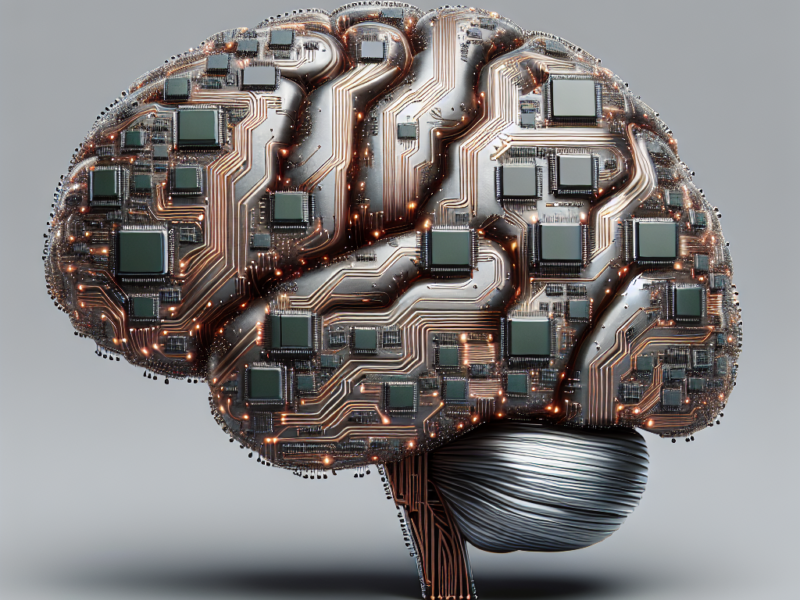The advent of artificial intelligence (AI) is heralding a transformative era in the way humans perform cognitive tasks. Gone are the days when machines were perceived as mere tools or replacements for human labor. Today, AI is evolving into an integral partner that enhances, rather than diminishes, human cognitive abilities. This collaboration between humans and machines is not just about efficiency; it represents a profound shift in how we think, learn, create, and make decisions.
The Intersection of AI and Human Cognition
Human cognition is deeply nuanced and multifaceted, involving perception, memory, reasoning, and problem-solving. Traditionally, our cognitive capabilities have been limited by biological constraints, such as memory capacity or the speed of information processing. However, AI technologies, particularly in the fields of machine learning and natural language processing, are bridging gaps and extending our cognitive reach.
Augmenting Decision-Making
AI systems have the ability to analyze vast amounts of data quickly and accurately, providing insights that may be beyond human capacity. In industries such as finance, healthcare, and logistics, AI algorithms synthesize information, identifying patterns and trends that inform critical decisions. For instance, AI-driven diagnostic tools can analyze medical images with unprecedented accuracy, enabling healthcare professionals to make more informed decisions about patient care. This augmentation allows humans to focus on what they do best—thinking creatively and empathetically—while machines handle the heavy lifting of data analysis.
Enhancing Learning and Education
The role of AI in education is reshaping the learning experience, making it more personalized and adaptive. Intelligent tutoring systems tailor learning paths to individual students, considering their unique strengths, weaknesses, and learning styles. By providing real-time feedback and recommendations, AI facilitates a more engaging and effective educational environment. This personalized approach not only helps students learn at their own pace but also fosters critical thinking and problem-solving skills—abilities that are paramount for future success.
Fostering Creativity and Innovation
AI is not only enhancing cognitive abilities but also fueling creativity. Generative AI models, such as OpenAI’s DALL-E and GPT-3, are capable of producing artistic works, music, and even literature. Artists and writers are increasingly using these tools as co-creators, enriching their creative processes. This collaborative dynamic allows humans to explore new ideas and concepts, pushing the boundaries of creativity. Rather than replacing human artists, AI enhances their capabilities, enabling them to experiment and innovate in ways that were previously unimaginable.
Improving Collaboration and Communication
AI tools are transforming how humans collaborate and communicate. Virtual assistants, powered by natural language processing, help streamline workflows by scheduling meetings, managing emails, and providing nuanced information on demand. In collaborative projects, AI can help teams coordinate tasks more effectively by analyzing performance metrics and suggesting adjustments for optimal productivity. Additionally, language translation systems break down barriers in global collaborations, allowing teams from diverse linguistic backgrounds to engage and innovate together.
Ethical Considerations and Challenges
While the potential of AI to enhance human cognitive abilities is immense, it comes with ethical considerations and challenges. Issues surrounding data privacy, algorithmic bias, and the potential for over-reliance on technology must be carefully addressed. Maintaining transparency in AI systems and ensuring that they complement rather than replace human judgment is critical. As we navigate this new era, fostering an AI-literate society that understands and actively manages these challenges will be crucial for realizing the full potential of AI-human collaboration.
Conclusion: Toward a Symbiotic Future
The collaboration between AI and human cognition is unfolding a new paradigm in which technology enhances our abilities rather than competing with them. By augmenting decision-making, personalizing education, fostering creativity, and improving collaboration, AI is set to uplift human potential in ways we are just beginning to understand.
As we step into this exciting new era, embracing a mindset of collaboration becomes essential. By working together—humans and machines—we can unlock unprecedented achievements, navigating complex challenges and exploring new frontiers of knowledge and creativity. The future lies in our hands, and with the right approach, AI can be the catalyst for a more intellectually empowered society.










